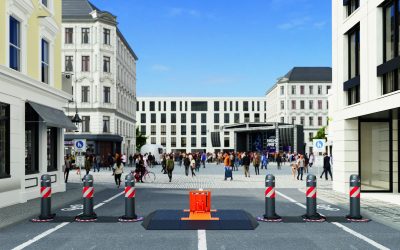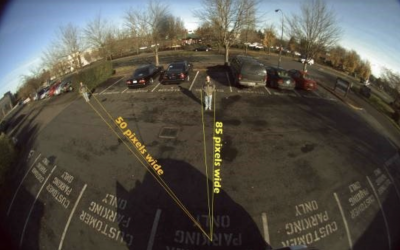Networked mobility services are playing an increasingly important role in making mobility in cities more environmentally friendly. The research project GAIA-X 4 moveID, which has just been launched, plays a significant role here and brings together offers from the private and public sectors. Areas of application include smart parking, smart charging for e-vehicles and the establishment of dynamic environmental zones in urban areas. Over the next three years, Materna will develop the underlying mobility data space for sovereign data exchange together with numerous consortium partners, including companies such as Bosch and Continental. Via this federated data space, vehicles can securely network and interact with other road users and transport infrastructure components.
The GAIA-X 4 moveID project supports the idea of networked mobility services and develops a decentralised mobility data space for two-way communication between digital identities of vehicles and other transport infrastructure components. It is a sub-project of the European initiative GAIA-X 4 Future Mobility, in which numerous renowned companies and organisations are participating. GAIA-X 4 Future Mobility is funded by the Federal Ministry for Economic Affairs and Climate Protection.
Use cases for the mobility of the future based on a federated data space
The GAIA-X 4 moveID research project deals with a wide range of scenarios for intelligent traffic management, such as smart parking, smart charging and smart zoning. In order to network vehicles and other components involved, such as traffic lights, barriers, car park ticket machines, petrol stations and charging points, they are assigned their own unique digital identity. Each ID is registered decentrally in a blockchain and validated using distributed ledger technology (DLT). Through these Self Sovereign Identity (SSI) technologies, the sensors of all objects in the system can connect and then interact with each other.
“With ad hoc identification and automated route clearance, traffic zones can be implemented dynamically. For example, traffic-calmed zones and environmental zones can be temporarily deployed in traffic areas where traffic control or environmental pollution requires it. Making mobility in cities more environmentally friendly is one of the main intentions of this GAIA-X project,” says Thomas Feld, Vice President Data Economics at Materna.
In addition, data collected in vehicles can be exchanged directly with the car manufacturer and used as a basis for software updates and product improvements. To explore this use case more closely in the project, Continental’s modern model factory is being connected to the data room as an example.
Materna contributes many years of expertise
Materna is a project partner in two of five sub-projects in the GAIA-X 4 Future Mobility project family. In the GAIA-X 4 moveID and GAIA-X 4 ROMS (Remote Operation Management Services) projects, the IT service provider is contributing its many years of expertise in setting up data ecosystems and developing mobility data spaces. Together with the participating consortium partners, Materna is laying important foundations for innovative mobility services of the future throughout Europe.





